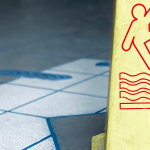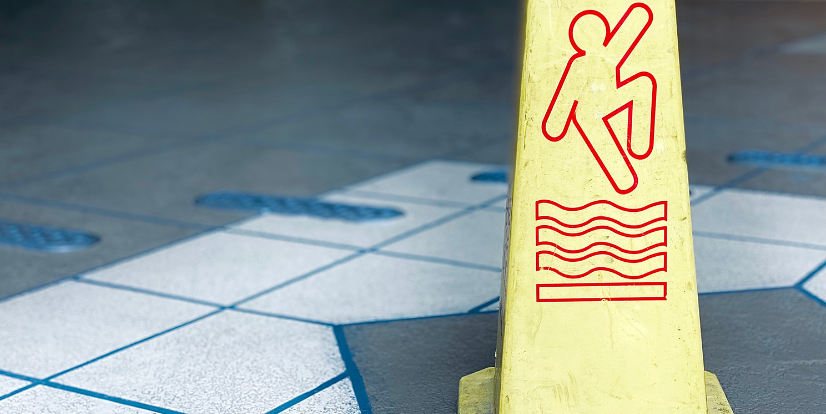Did you recently experience whiplash after a car accident? This common injury occurs when the neck undergoes a sudden back-and-forth motion, often resulting from rear-end collisions or other vehicular accidents. While many cases of whiplash resolve with proper care, severe whiplash after a car accident may require medical intervention to effectively manage symptoms and prevent complications.
In this article, we’ll explore how whiplash after a car accident impacts your body, the available treatment options, and the potential complications if left untreated.
How Does Whiplash Affect Your Body?
Whiplash occurs when the neck undergoes a rapid back-and-forth motion, typically during a car accident. This can be understood using the law of inertia, which states that a body in motion will continue to move until acted upon by an external force. In the case of a car accident, when the vehicle suddenly stops, the passenger’s body, including the neck, continues moving forward. The neck acts like a shock absorber, trying to protect the brain from injury. However, this protective motion can result in whiplash injuries to the muscles, ligaments, and other soft tissues in the neck.
Even a low-impact accident can cause moderate or severe whiplash. In some cases, whiplash can even damage the spinal cord or cause fractures in the vertebrae. Although whiplash is a condition still being studied by experts, the injury can cause a wide range of symptoms, from mild discomfort to significant long-term complications.
What Are the Complications of Whiplash After a Car Accident?
The complications of whiplash after a car accident can vary depending on the severity of the injury and how quickly treatment is received. Some potential complications include:
- Chronic neck pain: Untreated whiplash can lead to persistent pain in the neck, shoulders, and upper back.
- Reduced range of motion: The injury may limit neck mobility, making it difficult to perform daily tasks.
- Headaches and dizziness: Many people with whiplash experience ongoing headaches or dizziness, which can affect their quality of life.
- Neurological issues: Severe cases can involve damage to the nerves in the neck, leading to numbness, tingling, or weakness in the arms and hands.
Your healthcare provider will assess your case and discuss any potential complications based on the severity of your injury.
Whiplash After Car Accident: What to Do?
If you experience whiplash after a car accident, it’s essential to take immediate steps to manage the injury:
- See a healthcare provider: Early assessment can prevent long-term complications.
- Use painkillers: As your doctor advises, over-the-counter pain medications can help manage discomfort.
- Apply cold or hot compresses: Cold compresses reduce swelling and inflammation, while warm compresses can improve blood flow and promote healing.
- Rest and limit neck movement: Use a cervical collar to immobilize the neck and give the muscles time to recover.
- Avoid self-guided exercises: Consult a physiotherapist before engaging in any physical activity to prevent further damage to the injured muscles.
Whiplash After Car Accident Treatment
Although there is no “cure” for whiplash, proper management can facilitate healing and minimize symptoms. The main goal of treatment is to support the healing process while alleviating discomfort. Whiplash treatment varies based on the injury’s severity and whether the condition is acute or has become chronic. Some common treatment options include:
- Rest and immobilization: A cervical collar can help immobilize the neck, reducing strain on the muscles and ligaments.
- Medications: Painkillers and muscle relaxants are often prescribed to relieve pain and relax the neck muscles.
- Cold and hot therapy: Cold compresses should be applied during the first 48 hours to reduce inflammation, followed by heat to improve circulation and promote recovery.
- Physical therapy: A trained physiotherapist can guide you through exercises to restore neck strength and flexibility while preventing long-term complications.
In more advanced cases, other treatments may be necessary, including:
- Transcutaneous Electrical Nerve Stimulation (TENS): This therapy uses low-voltage electrical currents to relieve pain.
- Radiofrequency (RF) nerve ablation: RF nerve ablation can reduce chronic pain by disrupting nerve signals.
- Surgery: Although rare, surgery may be recommended for cases of severe whiplash where chronic discomfort persists and other treatments have failed.
Conclusion
Whiplash after a car accident is a common injury that can vary in severity, from mild discomfort to chronic pain and long-term complications. Proper management is essential to prevent further damage and ensure a smooth recovery. Treatment options include rest, medication, cold and hot compresses, and physical therapy. Advanced treatments like TENS therapy or even surgery may be necessary for more severe cases.
If you or a loved one has experienced whiplash after a car accident or other traumatic event, seeking medical attention is crucial. Early intervention can prevent complications and help ensure a faster recovery. Our team at Know Your Health can connect you with top healthcare providers for expert management and treatment of whiplash injuries.






